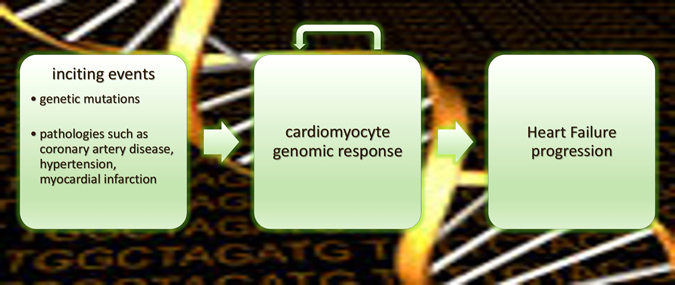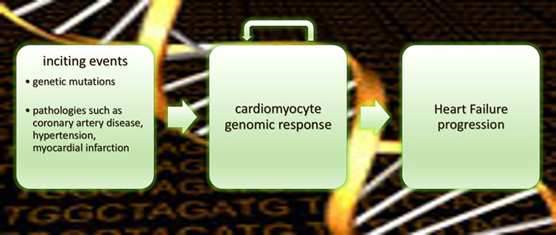Linda Pattini, Roberto Sassi, and Sergio Cerutti, Politecnico di Milano and Università degli Studi di Milano, Volume 61, Issue 5, Page: 1593-1603

Chronic Heart Failure is a complex syndrome, which can be the exit of different etiologies, consisting in the inability of the heart to provide adequate blood flow to meet the body’s metabolic needs, leading to clinical manifestations such as fatigue, breath shortness, diminished exercise capacity, fluid retention.
The essential cause of Heart Failure is a loss of function of cardiomyocytes, which reply to some stress and/or exceptional loading by reprogramming their gene expression, especially as concerns genes involved in metabolism, ions handling, and the re-use of genes that are specific of the fetal development.
Treatment outcome is still modest and new insights into pathophysiology are needed to translate new information into effective strategies of patients’ care. As a complex disease, it can really benefit from the new approach provided by molecular medicine potentially able to tackle its inherent heterogeneity. The comprehension of molecular mechanisms relies on new technologies, which are able to provide data at the different levels of the cell workflow.
In this review, different types of experimental data are explored, underlying the importance of integrating different level of investigations. Current knowledge of Heart Failure is reviewed in genetics, transcriptomics, proteomics, metabolomics, as concerns the cellular program, to arrive to the system level with heart rate variability parameters.
A proper processing of data is as essential as the generation of data itself, together with an integrative approach able to exploit observations at different scales, starting from the molecular levels up to an effective assessment of phenotype with cardiovascular and systemic parameters.
The contribution of information engineering is fundamental both at the low level analysis, to correctly process raw data, and for data mining and modeling.

